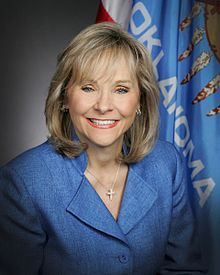A Short History of the UN's Efforts to Protect our Future; and
Our Determination to Tell the Truth About "Agenda 21"
You know about "Agenda 21" -- the outcome document from the 1992 UN Conference on Environment and Development.
In its day, Agenda 21 was a cutting edge achievement. It still is. It was a clarion call for action at international, national, regional and local levels. The non-binding action plan outlined a comprehensive series of steps that could be taken to protect the Earth's natural environment and implement strategies for the sustainable development of human communities.
The
Preamble of Agenda 21 described the challenges posed by uneven development and increasing pressures on fragile ecosystems:
"Humanity stands at a defining moment in history. We are confronted with a perpetuation of disparities between and within nations, a worsening of poverty, hunger, ill health and illiteracy, and the continuing deterioration of the ecosystems on which we depend for our well-being. However, integration of environment and development concerns and greater attention to them will lead to the fulfillment of basic needs, improved living standards for all, better protected and managed ecosystems and a safer, more prosperous future. No nation can achieve this on its own; but together we can - in a global partnership for sustainable development."
It is remarkable to think of the changes our world has seen since 1992. In terms of environmental protection, we have invested in new forms of sustainable energy. Wind turbines have popped up across our landscape. Hybrid automobiles have been brought into the marketplace. (The first Prius went on sale in Japan in 1997).
In terms of disparities related to poverty, hunger, illness, etc., the nations of the world made a bold commitment to address these problems when the
Millennium Development Goals were adopted at the UN's Millennium Summit in 2000. As a result, measurable progress has been made to improve the health of people around the world and to improve the status of people threatened by extreme poverty.
In the years since 1992, Agenda 21 has been reviewed and modified at least three times at various UN-sponsored meetings and conferences.
For example, in 1997, the UN General Assembly held a special session to appraise the status of Agenda 21.
In 2002, the World Summit on Sustainable Development (Earth Summit 2002) convened in Johannesburg, South Africa. The nations of the world affirmed the UN commitment to "full implementation" of Agenda 21, alongside achievement of the Millennium Development Goals and other international agreements.
Earlier this year, the United Nations Conference on Sustainable Development met under the banner, "
Rio + 20." It was the UN's largest and most inclusive Earth Summit so far. At the end of the conference, businesses, governments, civil society and multilateral development banks announced hundreds of voluntary commitments to shape a more sustainable future for the benefit of the planet and its people.
As an outcome document, the 2012 conference produced a report titled, "The Future We Want."
The 53-page document calls for a wide range of actions, among many other points, including:
- launching a process to establish sustainable development goals;
- detailing how the green economy can be used as a tool to achieve sustainable development;
- taking steps to go beyond GDP to assess the well‐being of a country;
- focusing on improving gender equality;
- stressing the need to engage civil society and incorporate science into policy; and
- recognizing the importance of voluntary commitments on sustainable development.
You can find a copy of the "The Future We Want" here ...
PDF.
We think it is important for Oklahomans to understand the significance of the various sustainable development conferences that have been convened by the United Nations during the last two decades. We think people should have a general understanding that the global community is moving forward to address the most difficult development issues of our times. Progress is being made, and the UN is being responsive to the expressed needs of businesses, governments, and civil society.
A Final Note:
As you know, a small group of Anti-UN Activists have
emerged to oppose the world's efforts to create a sustainable future. Lately, they have been alleging -- without any evidence -- that Agenda 21 is designed to limit or destroy property rights and to take away the due process rights that all of us enjoy.
In response to their disparaging criticisms, we did a search of "The Future We Want" to determine what it has to say about property rights. We found 5 references to "property" in the report. Mostly, the document expresses support for intellectual property rights. But, it also makes this statement with regard to individual property rights:
"240. We are committed to equal rights and opportunities for women in political and economic decision-making and resource allocation and to removing any barriers that prevent women from being full participants in the economy. We resolve to undertake legislative and administrative reforms to give women equal rights with men to economic resources, including access to ownership and control over land and other forms of property, credit, inheritance, natural resources and appropriate new technology."
It is an implicit statement in support of the right of individuals to own property -- and for women, in particular, to have equal access to property ownership. Equal access to economic resources is an important goal for the sustainable future we seek.
If you read or hear any zany-sounding rumors alleging a UN effort to eliminate property rights, please be sure to let us know. We'll do our best to counter the craziness.
Bill Bryant
President, OKC Chapter
United Nations Association of the USA
wildbill73107@cox.net




